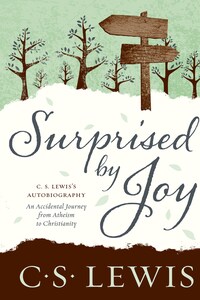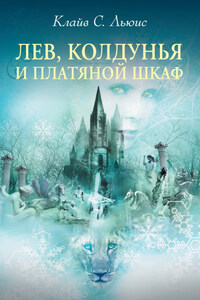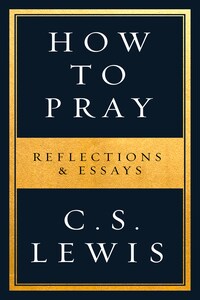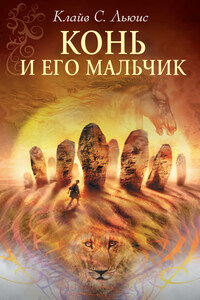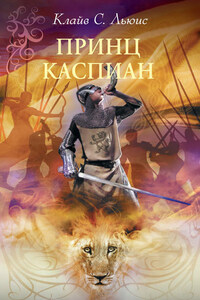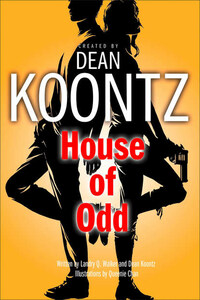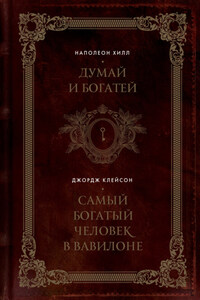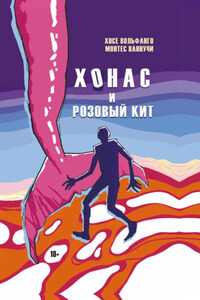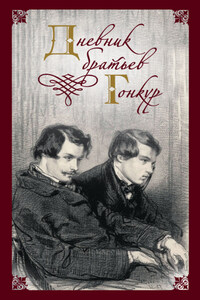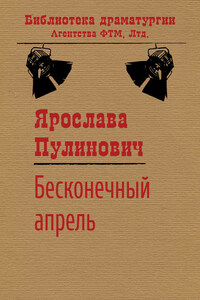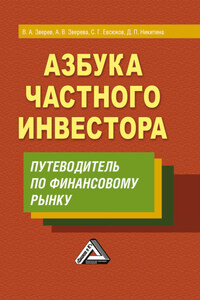C. S. LEWIS
SURPRISED
BY JOY
THE SHAPE OF MY EARLY LIFE
‘Surprised by Joy – impatient as the wind.’
WORDSWORTH
William Collins
An imprint of HarperCollinsPublishers
1 London Bridge Street
London SE1 9GF
www.WilliamCollinsBooks.com
First published in Great Britain by Geoffrey Bles 1955
Copyright © C. S. Lewis Pte Ltd 1955
Cover design and illustration by Kimberly Glyder
The right of C. S. Lewis to be identified as the author of this work has been asserted by him in accordance with the Copyright, Designs and Patents Act 1988
A catalogue record for this book is available from the British Library
All rights reserved under International and Pan-American Copyright Conventions. By payment of the required fees, you have been granted the non-exclusive, non-transferable right to access and read the text of this e-book on-screen. No part of this text may be reproduced, transmitted, down-loaded, decompiled, reverse engineered, or stored in or introduced into any information storage and retrieval system, in any form or by any means, whether electronic or mechanical, now known or hereinafter invented, without the express written permission of HarperCollins.
Source ISBN: 9780007461271
Ebook Edition © OCTOBER 2010 ISBN: 9780007332311
Version: 2015-12-05
To Dom Bede Griffiths, O.S.B.
This book is written partly in answer to requests that I would tell how I passed from Atheism to Christianity and partly to correct one or two false notions that seem to have got about. How far the story matters to anyone but myself depends on the degree to which others have experienced what I call ‘joy’. If it is at all common, a more detailed treatment of it than has (I believe) been attempted before may be of some use. I have been emboldened to write of it because I notice that a man seldom mentions what he had supposed to be his most idiosyncratic sensations without receiving from at least one (often more) of those present the reply, ‘What! Have you felt that too? I always thought I was the only one.’
The book aims at telling the story of my conversion and is not a general autobiography, still less ‘Confessions’ like those of St Augustine or Rousseau. This means in practice that it gets less like a general autobiography as it goes on. In the earlier chapters the net has to be spread pretty wide in order that, when the explicitly spiritual crisis arrives, the reader may understand what sort of person my childhood and adolescence had made me. When the ‘build-up’ is complete, I confine myself strictly to business and omit everything (however important by ordinary biographical standards) which seems, at that stage, irrelevant. I do not think there is much loss; I never read an autobiography in which the parts devoted to the earlier years were not far the most interesting.
The story is, I fear, suffocatingly subjective; the kind of thing I have never written before and shall probably never write again. I have tried so to write the first chapter that those who can’t bear such a story will see at once what they are in for and close the book with the least waste of time.
C. S. LEWIS
Happy, but for so happy ill secured.
MILTON
I was born in the winter of 1898 at Belfast, the son of a solicitor and of a clergyman’s daughter. My parents had only two children, both sons, and I was the younger by about three years. Two very different strains had gone to our making. My father belonged to the first generation of his family that reached professional station. His grandfather had been a Welsh farmer; his father, a self-made man, had begun life as a workman, emigrated to Ireland, and ended as a partner in the firm of Macilwaine and Lewis, ‘Boiler-makers, Engineers, and Iron Ship Builders’. My mother was a Hamilton with many generations of clergymen, lawyers, sailors, and the like behind her; on her mother’s side, through the Warrens, the blood went back to a Norman knight whose bones lie at Battle Abbey. The two families from which I spring were as different in temperament as in origin. My father’s people were true Welshmen, sentimental, passionate, and rhetorical, easily moved both to anger and to tenderness; men who laughed and cried a great deal and who had not much of the talent for happiness. The Hamiltons were a cooler race. Their minds were critical and ironic and they had the talent for happiness in a high degree - went straight for it as experienced travellers go for the best seat in a train. From my earliest years I was aware of the vivid contrast between my mother’s cheerful and tranquil affection and the ups and downs of my father’s emotional life, and this bred in me long before I was old enough to give it a name a certain distrust or dislike of emotion as something uncomfortable and embarrassing and even dangerous.
